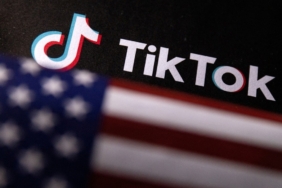On Tuesday, Brazil’s Supreme Court granted permission for X to recommence its services in the country following the platform’s decision to adhere to previously issued court rulings. This marks a significant shift from the stance taken by billionaire owner Elon Musk, who had openly criticized these rulings.
Supreme Court Justice Alexandre de Moraes, who has been in a prolonged dispute with Musk, authorized the immediate resumption of operations for X, which is recognized as the country’s largest social media platform.
In his ruling, Moraes confirmed that X had fulfilled all necessary conditions to resume its activities in Brazil.
The platform, previously known as Twitter, had faced suspension in Brazil, one of its key markets, since late August due to non-compliance with court mandates concerning hate speech moderation and a lack of a legal representative in the country, as required by local regulations.
Musk had previously labeled the court’s orders as acts of censorship and referred to Moraes disparagingly. However, in recent weeks, there has been a notable shift in strategy, with X taking steps to comply by blocking accounts identified by the court, appointing a local representative, and addressing outstanding fines.
In the ruling delivered on Tuesday, Moraes directed Brazil’s telecommunications authority, Anatel, to facilitate X’s immediate return to service within 24 hours. Nevertheless, users in Brazil still reported difficulties accessing the platform as of 7 p.m. local time on that day.
Through its Global Affairs account, X expressed its satisfaction in reentering the Brazilian market, emphasizing its commitment to uphold freedom of speech within legal frameworks across its operating regions.
The conflict in Brazil is part of a broader pattern of confrontations involving Musk, who portrays himself as an advocate for free speech, and various governments such as those in Australia and the United Kingdom, that are attempting to curb the spread of disinformation online.
Brazil’s communications minister described X’s decision to adhere to court rulings and settle fines as a “victory for the country.” Juscelino Filho highlighted that this outcome demonstrates Brazil’s resolve in ensuring that all entities respect its laws.
Judicial Battle
The suspension of X stemmed from an individual ruling by Moraes, reflecting his dedicated efforts against perceived threats to democracy and the political misuse of disinformation.
This ruling received unanimous support from a five-member panel of the Supreme Court, led by its chief justice. President Luiz Inacio Lula da Silva also endorsed the court’s actions, asserting that businesses operating in Brazil must abide by local laws, and critiquing Musk for his perceived political ideology.
At the time of the ruling, justices indicated that they would reconsider the suspension if X complied with the court orders. Initially, X had declared its refusal to comply, branding the orders “illegal.”
Statistics show that Brazil is X’s sixth-largest market globally, with approximately 21.5 million users as of April, according to Statista. Many users had shifted to alternative platforms such as Bluesky and Threads during the suspension.
X maintained a legal representative in Brazil until mid-August, when it chose to close its local offices in response to the court’s demands. This decision led to the suspension of the platform after the absence of a designated legal entity in the country.
This judicial dispute also affected Musk’s other business, Starlink, as its accounts were temporarily suspended by Moraes to cover fines imposed on X.
A new legal representative, attorney Rachel de Oliveira Conceicao, was appointed in late September, coinciding with X’s actions to block accounts mandated by the court.
This month, the company paid the fines it had previously contested, laying the groundwork for its reinstatement in Brazil.
Throughout the suspension, X was unavailable during the crucial final month of Brazil’s municipal elections, concluding on Sunday. Notably, some major cities, including São Paulo, will require run-off elections on October 27.
© Thomson Reuters 2024
(This story has not been edited by NDTV staff and is auto-generated from a syndicated feed.)






